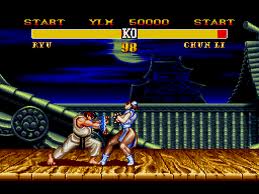
All right, get ready, ’cause I’m gonna lob an overused bomb your way:
Are games art?
Oh, SNAP. “Not this again,” you are no doubt thinking, especially after yesterday’s story! Many an Internet columnist has hammered this very selfsame subject into the ground over and over on dozens, nay hundreds, of different occasions. Roger Ebert has been cursed to the high heavens upon many a screen. Since we’re talking about Art Style this week, I think it’s more than appropriate to dredge up this old topic again.
I mean, “art” is in the title of that series. If that’s the case, it’s gotta be art of some sort, right?

Well, I don’t exactly agree, for a number of reasons. Let’s start by defining what art is in the first place. In case you don’t remember, the Wikipedia entry defines art as follows:
Art is the process or product of deliberately arranging elements in a way to affect the senses or emotions. It encompasses a diverse range of human activities, creations, and modes of expression, including music, literature, film, photography, sculpture, and paintings.
Note the conspicuous absence of video games. Not that Wikipedia is the definitive source for everything. Webster’s Dictionary defines “art” like this:
the conscious use of skill and creative imagination especially in the production of aesthetic objects; also : works so produced
Now, this definition is a bit more all-encompassing, and if we went strictly by this meaning, games could likely be included. But should they be?
I’m not trying to raise more questions here; I’m trying to answer them. Here’s how I see it: games are not art. I do not play games to be inspired. I play them for my own enjoyment and entertainment, or occasionally as a bonding experience with others. Now, do games evoke emotions or affect senses? Yes, that part is is definitely true. So why is it that I don’t consider games to be art?
It’s a somewhat complex answer. The way I see it, art is something that you look at or hear. Something that already exists and that you, the beholder, can only experience passively. You affect a game just by playing it. Sure, there are predetermined outcomes and limited possibilities, but every so often, you can do something special. In a game, you can go beyond what the developers intended. You can find new solutions to puzzles. In Portal, my friend Jake had carried a cube over several yards of floor in order to place it on a switch, only to be astounded when I created two portals that caused it to instantly fall upon the switch without my direct interaction.

A better example of this would be Street Fighter II. The developers at Capcom were astounded when arcade players started improvising multiple-hit combos. These sequences of attacks were unblockable if executed correctly, and were not a part of the game’s original programming. Players were learning them through trial and error, finding new ways of working through the game’s set variables. Of course, later, these were worked into the game, which is why you can do fifty billion damage points as Morrigan and Tekkaman Blade in Tatsunoko Vs. Capcom. In essence, players created a new series of possibilities within the game itself. They changed it.
So, in a nutshell, that’s my argument. Games aren’t art because art is something you look at or listen to. Games are something you do.




 ShareThis
ShareThis







Obviously, this is not from a narrow mind that believes games to lack artistic form, but rather a gamer who feels art lacks gameplay (much more the otherway around).
However, I have to say I feel one argument as narrow minded as the other. If games can contain artistry, why should art stop at passive observeration? Does not a song become interactive as you sing along? Why should art be held back by encyclopedias and dictionaries that are simply behind the times as those that attack cybernatography?
Nice article but your argument is based on the idea that art is completely self contained and distant from the viewer, which is completely untrue. The whole reason behind is that it affects you and changes based on how you interpret it.
When you read a book, your knowledge and emotions towards the characters and events changes how you see it overall. Every single person that reads any one book takes away a different experience from it, there’s no book that everyone feels the same way about.
People have always deeper meanings and more profound ideas in art than the artist ever imagined, looking at the sub conscious choices and developing new concepts. I don’t see how that’s any different from finding new combos in Street Fighter at all.
And lastly there are some types of art that only become art when a person becomes involved with them, otherwise they are nothing. Things like John Cage’s 4 minutes 33 seconds of silent music focuses solely on the sounds created by the audience and surrounding world for example. Even exhibition pieces such as Tate Modern’s crack in the floor or things like Picasso’s Guernica can only come alive when someone interacts with them and makes choices and becomes involved.
So I don’t agree that you DO games and SEE art. Becoming involved and becoming an active part of art is how you make it art in the first place.
Oh, I forgot books! You have to interact with books in order for the story to continue! And not just reading and turning the page, but it needs you imagination to create the characters, environments, and the events. Thanks Adam.
You’re welcome xeacons.
On the topic of video games versus books, here’s some more excellent commentary on the subject– though, probably relevant on a different level: http://bit.ly/ddYJ5Z